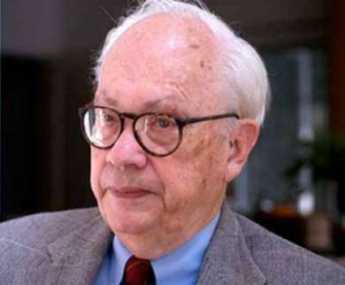Related Topics
Old Age
New topic 2019-04-09 16:04:33 description
Pearls on a String:Further Extending Health (and Retirement) Savings Accounts
Pearls on a String: Further Extending Health (and Retirement) Savings Accounts.
HSAs are the string. Retirement saving, Privatizing Medicare, and Shifting Childhood Costs-- are the Pearls. Other Pearls to follow.
Front Stuff: Pearls on a String: Further Extending Health (and Retirement) Savings Accounts
...Also by the same author:
The Hospital That Ate Chicago, Saunders Press, 1980
Health Savings Accounts: Planning for Prosperity, Ross & Perry, Inc. 2015
Surmounting Health Costs to Retire: Health (and Retirement) Savings Account. 2016
Pearls on a String: Further Extending Health (and Retirement) Savings Accounts (This Volume), 2016
---------------------------------
Ross & Perry Book Publishers
3 South Haddon Avenue
Haddonfield, New Jersey 08033
856-427-6135
----------------------------------
Pearls on a String: Further Extending Health (and Retirement) Savings Accounts Copyright:
ISBN #: (978-1-932080-56-8)
-----------------------------------
Acknowledgements
For advice and support about the thrust of this much-revised book, I owe new debts to the many people who read the first versions and commented. The first book was written as ideas developed in my mind, and rather in a hurry. The second revision was written so later thoughts could be introduced earlier in the argument. This one was written and rewritten to rise above the twin possibilities that either, the Affordable Care Act would be completely repealed, or it would essentially survive forever. I still don't know its future, whether it is too big to fail, or too big to survive. Either way, I think it failed to reform some things which should be reformed. The best way to defend that position is to propose an alternative which is much simpler, but more radical.
----------------------------------------------------------------------
Foldback, Front Cover
This book outlines the hidden advantages of Health Savings Accounts, which the author had a hand in creating in 1981, along with John McClaughry of Vermont when John was Senior Policy Advisor in the Reagan White House. HSAs had more advantages than we realized. By turning them into retirement funds at the end, not a word was changed but they created a new incentive to save, by adding a new reason to save. By simplifying reimbursement, they exposed the ineffectiveness of third-party policing and saved money to be multiplied by investment. They were a vehicle for subsidies to the poor, a Christmas savings fund for the frugal, and interstate mobility for the rich.
Finally, the idea dawned that such simplicity provided an avenue for a gradual transition to new programs, as well as an escape hatch if they failed. Beads on a string, as it were, with a common retirement fund at the end, as a universal incentive for savings in each program added. It might take fifty years to implement every step proposed. But then, it took fifty years to get into this situation.
--------------------------------------------------------
Foldback, Back Cover

|
| George Ross Fisher III M.D. |
George Ross Fisher, MD, the author of this book, graduated from the Lawrenceville School in 1942, from Yale University in 1945, and from Columbia University, College of Physicians and Surgeons in 1948. After postgraduate training at Pennsylvania Hospital, Thomas Jefferson University, and the National Institutes of Health, he spent 60 years practicing medicine in Philadelphia and consulting in New Jersey and Delaware. During that time, he spent 25 years as a delegate to the American Medical Association, and as a trustee of a number of medical organizations.
Following retirement, he formed a publishing company, Ross and Perry, Inc, which has published several hundred books, mostly reprints. He is personally the author of eleven books about Philadelphia history, from William Penn to Grace Kelly. He is the author of the following three books about medical economics:
The Hospital That Ate Chicago; Health Savings Accounts: Planning for Prosperity; Surmounting Health Costs to Retire: Health (and Retirement) Savings Accounts and (the current volume.)
------------------------------------------------------------------------
Dedication Page
To Senator Bill Roth of Delaware, who demonstrated the road between private and public sectors, need not be a one-way street.
-------------------------------------------------------------------------
Book cover back page, possibly in conjunction with above box and introduction, please discuss:
Health savings account
From Wikipedia, the free encyclopedia
This article is about medical savings accounts in the United States. For international uses, see medical savings account. Health care in the United States
______________________________________________________
A health savings account (HSA) is tax-advantaged medical savings account available to taxpayers in the United States who are enrolled in a high-deductible health plan (HDHP).[1][2] The funds contributed to an account are not subject to federal income tax at the time of deposit. Unlike a flexible spending account (FSA), HSA funds roll over and accumulate year to year if they are not spent. HSAs are owned by the individual, which differentiates them from company-owned Health Reimbursement Arrangements (HRA) that are an alternate tax-deductible source of funds paired with either HDHPs or standard health plans.
HSA funds may currently be used to pay for qualified medical expenses at any time without federal tax liability or penalty. Beginning in early 2011 over-the-counter medications cannot be paid with an HSA without a doctor's prescription.[3] Withdrawals for non-medical expenses are treated very similarly to those in an individual retirement account (IRA) in that they may provide tax advantages if taken after retirement age, and they incur penalties if taken earlier. The accounts are a component of consumer-driven health care.
-------------------------------------------------------------------
Originally published: Thursday, July 14, 2016; most-recently modified: Thursday, May 02, 2019